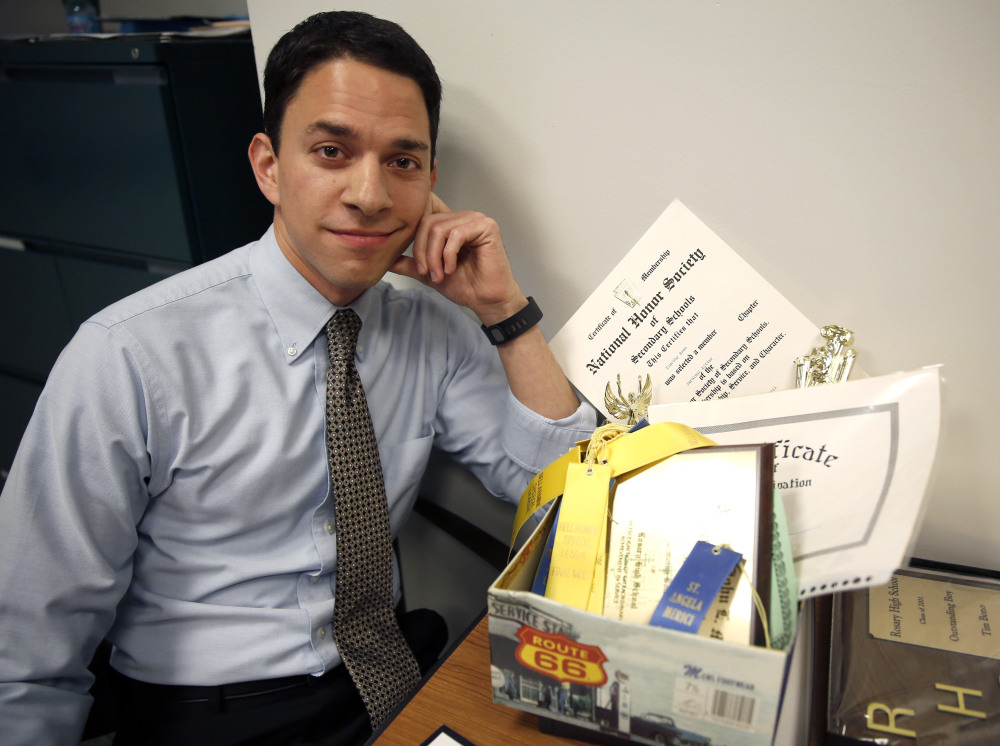Are you happy? Very happy? If you’re in your 30s or older, a new study has found that you’re less likely to answer “yes” than your parents were.
The findings, published online Thursday in the journal Social Psychological and Personality Science, come on the heels of another recent report that found that death rates of middle-aged white Americans have been rising, largely due to suicide and substance abuse.
“Age is supposed to bring happiness and contentment. For that not to be true anymore is somewhat shocking,” says Jean Twenge, a professor at San Diego State University who is the study’s lead author. She also wrote the book “Generation Me,” a look at young adults and the attitudes and influences that have helped shape them.
Starting with data in the early 1970s, Twenge and her colleagues found that adults 30 and older used to be happier than younger adults and teens. But that “happiness advantage” has steadily declined as the older adults have expressed less satisfaction with their lives and the younger cohort has gotten a little happier.
Other experts who study happiness say the findings fit with their own research. They attribute the shift to everything from growing financial pressures – and what some call “economic insecurity” – to the fact that real life has been a rude awakening for a generation of young adults who were told they could do anything and are discovering that often isn’t true.
Tim Bono, a psychologist at Washington University who teaches and studies happiness, thinks there’s something to that “rude awakening” theory for his generation of young adults.
A while back, the 32-year-old professor came across a box of school papers and other relics from his past – worksheets, assignments and notes sent home that all reinforced “how special I was and how I could do anything I set my mind to.” He also found many of the ribbons and trophies he’d received as a kid, not only for winning but for simply participating in sports.
“My generation has been bathed in messages of how great we are and how anything is possible for us,” Bono says, noting that that mindset can easily lead to disappointment.
Before you get too bummed out, consider another finding of the study: One in three of all American adults still report being “very happy.”
Twenge and her colleagues found, for instance, that 30 percent of those in the 18- to 29-year-old range gave that response in the 2010s, compared with 28 percent in the early 1970s.
There’s also been a notable uptick in “very happy” teens. In the 1970s, for instance, 19 percent of 12th-graders chose that response, compared with 23 percent in the 2010s.
Adults age 30 and older, however, have seen a 5-percentage-point drop, from 38 percent in the early 1970s to 33 percent today.
The findings – which are from University of Chicago’s longstanding General Social Survey and the University of Michigan’s Monitoring the Future survey – ring true for Emily Valdez, a 49-year-old mom in Seattle.
“I thought that life would be simpler,” she says. “My parents’ marriage, children, child-rearing just seemed – and still seems in their eyes – less fraught with indecision, second-guessing and maybe just less insecurity.”
Some say the onslaught of information at our fingertips every day is one factor making us feel overwhelmed.
Send questions/comments to the editors.



Success. Please wait for the page to reload. If the page does not reload within 5 seconds, please refresh the page.
Enter your email and password to access comments.
Hi, to comment on stories you must . This profile is in addition to your subscription and website login.
Already have a commenting profile? .
Invalid username/password.
Please check your email to confirm and complete your registration.
Only subscribers are eligible to post comments. Please subscribe or login first for digital access. Here’s why.
Use the form below to reset your password. When you've submitted your account email, we will send an email with a reset code.